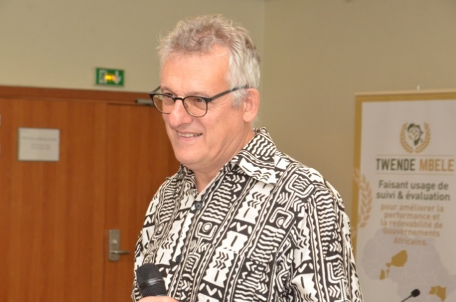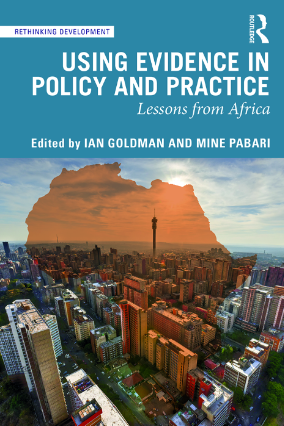
Hello! I’m Professor Ian Goldman, CLEAR Anglophone Africa. Mine Pabari and I have brought together eight cases of evidence use by governments to understand how policy makers behaviour was influenced. These draw on use of different evidence sources (research, research synthesis, evaluations and citizen engagement), in 5 countries (Kenya, Uganda, South Africa, Benin, Ghana) and the ECOWAS grouping of West African countries. The cases use a policy maker rather than a researcher lens, so we see government as an active protagonist not a passive recipient of evidence.
The analytical framework we used built on frameworks developed by Laurenz Langer and Vanessa Weyrauch, looks at the macro and micro (organisational) context, and how this influences interaction between government agencies and non-state actors, and ultimately influences use. How power and participation are used matters, across organisations, between the state and citizens, and within organisations. We expanded on this in our paper on the role and potential of civil society in evidence use, recently published in the African Evaluation Journal. In this paper we note the impact of the nature of relationships and quality of engagement of civil society on the use of evidence, particularly relevant to the power and participation theme.
The book provides useful lessons for policy makers, practitioners and researchers in Anglophone and Francophone Africa on how evidence use happens and how specific interventions to encourage use are needed, but which must be adapted to the context. The eight evidence journeys explore the effect of these interventions on building awareness, ownership, trust, skills and promote institutionalisation, leading to changes in policy makers’ capability, motivation and opportunity to use evidence. A key role emerges around knowledge brokering within and outside government, and the facilitation of these evidence journeys.

It is exciting to be sharing examples of government use of evidence from Africa, and three of the countries (Uganda, Benin and South Africa) have also been pioneers in establishing national evaluation systems. The chapters are being shared at webinars. The book can be obtained from the publisher, where there is also an open access version, or at normal booksellers.
We would love to hear your feedback: ian.goldman@wits.ac.za, mine.pabari@athariadvisory.co.ke
This book is now available, along with a series of videos and policy briefs, in English and French, the latter accessible here.
The American Evaluation Association is celebrating International and Cross-Cultural (ICCE) TIG Week with our colleagues in the International and Cross-Cultural Topical Interest Group. The contributions all this week to aea365 come from our ICCE TIG members. Do you have questions, concerns, kudos, or content to extend this aea365 contribution? Please add them in the comments section for this post on the aea365 webpage so that we may enrich our community of practice. Would you like to submit an aea365 Tip? Please send a note of interest to aea365@eval.org. aea365 is sponsored by the American Evaluation Association and provides a Tip-a-Day by and for evaluators.
